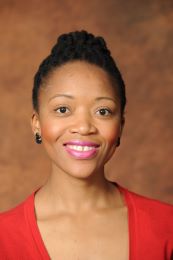 By Kopo Ndhlovu
By Kopo Ndhlovu
Human trafficking is a global problem and a form of modern day slavery. It affects millions of people around the world and the majority of victims are women and children. It often results in the exploitation of girls and women mainly, as well as boys and men where victims are unable to escape from their trafficker. Victims are coerced into forced labour, sexual exploitation, servitude or slavery-like practices, removal of body parts and forced marriages.
South Africa is not immune from this heinous crime with many women and children trafficked out of and into the country annually. This is despite the fact that the country has a number of pieces of legislation to fight human trafficking.
We are guided by the National Policy Framework on the Management of Trafficking in Persons Offences which ensures the integrated management of trafficking in persons. To give effect to the policy, in August 2015 we enacted the Prevention and Combating of Trafficking in Persons Act which deals with all aspects of human trafficking. It prescribes a maximum penalty of R100 million, or life imprisonment, or both in the case of someone found guilty of the main offence of human trafficking.
We also continue to hold those responsible for such a crime accountable. For instance, six suspects were recently arrested on suspicion of human trafficking, kidnapping and extortion in Mayfair by the multi-disciplinary team led by the Anti-Kidnapping Task Team. Furthermore, a number of suspects have already appeared in various courts across the country while others have been imprisoned for human trafficking and related charges. These are but a few successes with many more arrests and convictions still needed to truly make a dent in the fight against human trafficking. “Defeating human trafficking is a great moral calling of our time.” (Condoleeza Rice, former U.S. Secretary of State).
The successful fight against human trafficking requires a multidisciplinary approach, including society.. It is important that we educate ourselves on what constitutes human trafficking and report suspicious activities to the police. Human trafficking can happen in broad daylight and we need to understand that anyone can be a trafficker or be trafficked, especially children. This can be your neighbour and friend, business leader and community worker.
To be safe you should avoid traveling alone, at night, or on deserted side streets. If you think you are being followed, find a crowded place. Tell someone you trust when you are going to an interview, and arrange for them to call or make contact after a certain amount of time. If possible have someone go with you. These are some precautions one can take, and children must also be made aware of precautions to take. Parents, caregivers and teachers are urged to be extra vigilant over the safety and whereabouts of children in their care. Train your child to be aware of their surroundings, how to identify a threat and how to react. Teach your child to move away from a stranger’s car.
Teach children to stay away from strangers at all times, never tell strangers their name or where they live. Teach your child that they have the right to refuse any unwelcome actions by others and get out of those situations as quickly as possible.
As we commemorate 30 Years of Freedom, we should not idly stand by and watch while women and children are not able to fully enjoy their rights. Just like our founding fathers who fought against injustices, we should commit ourselves in ensuring that no woman, child or man becomes a victim of such a crime. We therefore call on everyone to immediately report such criminal acts to the police. Now that you have read this “You may choose to look the other way but you can never say again that you did not know.” (William Wilberforce, British politician and abolitionist).
Kopo Ndhlovu is Deputy Director: Research at Government Communication and Information System

